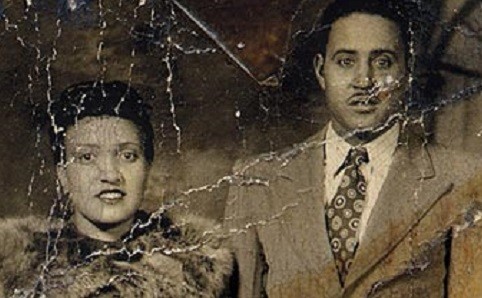
- #Quotes from the immortal life of henrietta lacks for free
- #Quotes from the immortal life of henrietta lacks full
By connecting Henrietta to her cells, Lengauer serves as a foil to the rest of the scientific community, who largely dehumanized Henrietta and ignored her connection to the HeLa cells. He suggests that the contaminating nature of the HeLa cells are partly Henrietta’s way of exacting justice for the crimes committed against herself and her family. He personifies Henrietta’s cells and asserts that they belong to her. Here Lengauer is referring to the damage the HeLa cells caused when it was revealed that they had contaminated years and millions of dollars worth of cellular research around the world. Seems like a bit of poetic justice, doesn’t it?” Pg.

“Her cells caused millions of dollars in damage. For Lawrence to be unaware of the HeLa cell line, when anyone familiar with the basics of molecular science would recognize it, shows how distant the science world can be from the average person.
#Quotes from the immortal life of henrietta lacks full
Finally, public ignorance of science and medicine are on full display in this quote. The degree to which Henrietta the person had been separated from the HeLa cells show how science had stripped the cells of their human element. Questions of medical ethics are raised once we realize that no one in Henrietta’s family was told about her importance. Several core themes of the book are exhibited in these poignant words from Lawrence Lacks. “I know they did something important, but nobody tells us nothing.” Pg. “Can you tell me what my mama’s cells really did?” he whispered. researcher rights regarding cellular matter and technology developed from that matter.

Gey’s possessiveness foreshadows the court cases and legal debates surrounding patient rights vs. Not Henrietta’s, or her family’s, but his. Gey’s annoyance that someone else was in control of HeLa demonstrates how possessive he grew over Henrietta’s cells, and how he considers them his own property. “Gey was relieved that companies had taken over HeLa distribution so that he didn’t have to do it himself, but he didn’t like the fact that HeLa was now completely out of his control.” Pg. This quote exhibits the complexity of the conversation surrounding Henrietta and the HeLa cells. On the other hand, by referring to the HeLa cells as “pieces” of Henrietta, Cootie affirms that the cells are remnants of his cousin, not just bits of matter manipulated by scientists in labs. They have reached a size and mass that she never approached in life. On one hand, it stresses how separate Henrietta is from her cells. This quote from Henrietta's cousin Cootie is somewhat contradictory. “And Henrietta never was a big girl.” Pg. “You know, they said if we could get all the pieces of her together, she’d weigh over eight hundred pounds now,” he told me. Lastly, the quote illustrates Henrietta’s generous and selfless spirit. Second, it introduces the idea of Henrietta’s cells making her immortal. First, it shows that at some point Henrietta was told of her cells’ importance and role they would play for civilization. If this exchange between Gey and Henrietta actually occurred, it’s significant for several reasons. She told him she was glad her pain would come to some good for someone.” Pg.

“George told me he leaned over Henrietta’s bed and said, ‘Your cells will make you immortal.’ He told Henrietta her cells would help save the lives of countless people, and she smiled. Skloot passes Patillo’s test, because he puts her into contact with Henrietta’s family. If she truly wishes to tell Henrietta’s story, she should already know that science has a past of misusing Black bodies. When he asks Skloot what she knows about the relationship between Black people and science, he is testing her intentions.

Seemingly perfunctory, Patillo’s question masks a relationship fraught with violence, deceit, and racism. “What do you know about African-Americans and science?” Pg. Is it ok to use humans as research without their consent? At what point should the rights of the individual supersede their possible contributions to the human race? This quote also foreshadows Henrietta’s story-George and Margaret Gey acquired Henrietta’s cells from John Hopkins hospital, which treated her for free. This quote introduces the topic of medical ethics to Skloot’s work and sets up many of the questions Skloot explores throughout the book.
#Quotes from the immortal life of henrietta lacks for free
Many scientists believed that since patients were treated for free in the public wards, it was fair to use them as research subjects as a form of payment.” Pg 51 “Like many doctors of his era, TeLinde often used patients from the public wards for research, usually without their knowledge.


 0 kommentar(er)
0 kommentar(er)
